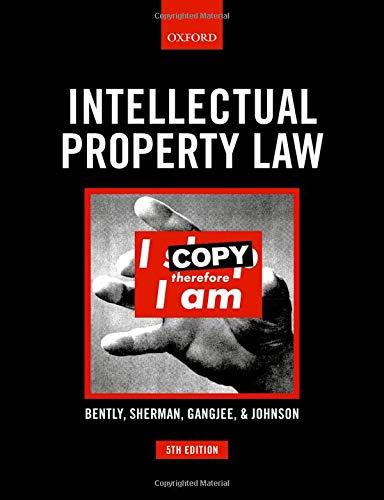Question
Non-patrimonial loss in regard to physical and mental integrity.... Does not require bodily or psychiatric injury. May require bodily or psychiatric injury. 3. Requires bodily
Non-patrimonial loss in regard to physical and mental integrity....
- Does not require bodily or psychiatric injury.
- May require bodily or psychiatric injury.
3. Requires bodily or psychiatric injury.
4. All the above are true.
Either 3 or 2.
The fact that they state "classification of specific forms of harm related to physical- mental integrity should not be taken too far."
makes me think the answer should be 2.
By contrast, the position in Roman-Dutch law, under the influence of Germanic customary law, was that pain, suffering and bodily disfigurement as a result of physical injuries founded an action. Although this action was dealt with by most of the old writers in the same breath as theAquilianaction, the two actions were nevertheless different. In Roman-Dutch law, theactio legis Aquiliaewas restricted to patrimonial damage, and thus did not include compensation for injury to personality as a result of pain and suffering. However, the action for pain and suffering did not reach its logical end development in Roman-Dutch law. Clearly not every form of harm relating to physical-mental integrity and resulting from a culpable act was actionable, as the old authorities only mention compensation for pain, suffering and bodily disfigurement. No reference was made to other forms of harm related to physical-mental integrity, such as shock, loss of amenities of life and loss of life expectancy.
The action for pain and suffering has been adopted by South African law and is considered by the courts, just as in Roman-Dutch law, to be a unique action that cannot be classified with theactio legis Aquiliaeor with theactio iniuriarum. The courts, however, continued to develop the action, with English law playing an important role, to the extent that it now protects the physical-mental integrity of a person in its entirety. In addition to pain, suffering and disfigurement, which had already been identified at common law, this protection is particularly apparent insofar as psychological or mental injury is equated with physical (bodily) injury in the area of emotional shock, and loss of (or shortened) life expectancy, amenities of life and health are recognised as injuries to personality for which compensation may be claimed. In this regard, one must nevertheless warn that the classification of specific forms of harm related to physical- mental integrity should not be taken too far.
Step by Step Solution
There are 3 Steps involved in it
Step: 1

Get Instant Access to Expert-Tailored Solutions
See step-by-step solutions with expert insights and AI powered tools for academic success
Step: 2

Step: 3

Ace Your Homework with AI
Get the answers you need in no time with our AI-driven, step-by-step assistance
Get Started


